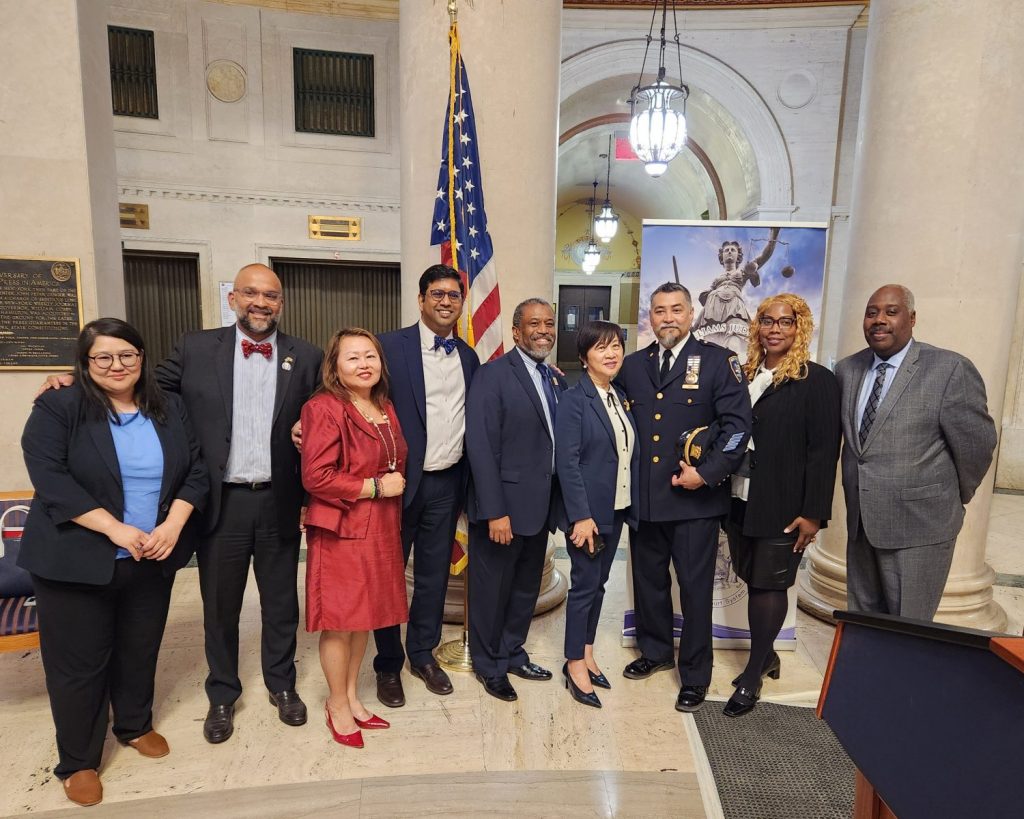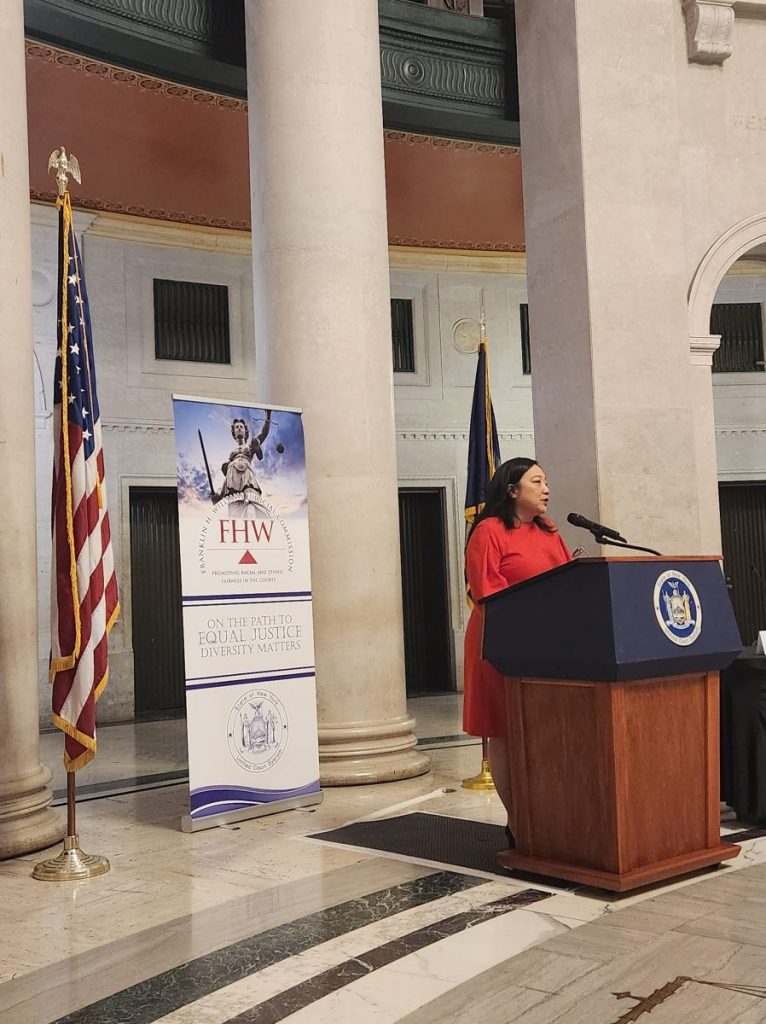On May 18, 2023, the Franklin H. Williams Judicial Commission presented “Empowered Asian American Leadership” at the New York County Supreme Court at 60 Centre Street, in celebration of Asian American Pacific Islander Heritage Month. The program was co-sponsored by AABANY, the New York State Unified Court Systems Office of Diversity and Inclusion, the Asian American Judges Association of New York, and the Asian Jade Society of the New York State Courts.

AABANY member Hon. Jeffrey Oing, Associate Justice, Appellate Division, First Department; Commissioner, Franklin H. Williams Judicial Commission, introduced the Keynote Address, “The Model Minority Victim,” delivered by AABANY member and former Chair of the AABANY: Anti-Asian Violence Task Force, Professor Elaine M. Chiu of St. John’s University School of Law.

Pre-recorded remarks by Chief Judge Rowan D. Wilson commenced the program.
Welcome Remarks were provided by:
Hon. Shahabuddeen A. Ally, Supervising Judge, New York County Civil Court and Acting Justice of the New York Supreme Court; President of AAJANY; Commissioner, Franklin H. Williams Judicial Commission, and AABANY member
Hon. Troy K. Webber, Associate Justice, Appellate Division, First Department; Co-Chair, Franklin H. Williams Judicial Commission
Hon. Richard Rivera, Acting Supreme Court Justice and Supervising Judge of the Family Courts, Third Judicial District; Co-Chair, Franklin H. Williams Judicial Commission
Karen Kim, Senior Counsel at QBE North America; President, AABANY
The program also included CLE presentations, introduced by AABANY member Rina Gurung, Judge, Housing Part, New York City Civil Court; Commissioner, Franklin H. Williams Judicial Commission.
“The Path to Success and Overcoming Obstacles” was moderated by the Hon. Austin D’Souza, Judge, Civil Court of the City of New York Kings County and AABANY member. Panelists were:
Hon. Zainab A. Chaudhry – Judge, New York State Court of Claims, and AABANY member
Lieutenant Henry Chen– New York County Civil Court, Co-Founder and President, NYSC
Asian Jade Society; Commissioner, Franklin H. Williams Judicial Commission
Hon. Raja Rajeswari – Chair, NYC Criminal Court Equal Justice Committee; Chair,
NYS Unified Court System Advisory Committee on Language Access
Hon. Toko Serita– Statewide Coordinating Judge for Problem-Solving Courts, NYS Unified
Court System, and AABANY member
“Positive Action to Combat the Perpetual Foreigner Syndrome and Empowering the Community” was moderated by the AABANY member Hon. Doris Ling-Cohan, former Associate Justice, Appellate Division, First Department; Commissioner, Franklin H. Williams Judicial Commission. Panelists were:
Joseb “Joe” Gim, Esq. – Chief, Criminal Court Unit, Kings County District Attorney’s Office
Christina Seid – Community Activist, Entrepreneur, Chinatown Ice Cream Factory, and AABANY member
President Frank H. Wu – President, Queens College, The City University of New York (CUNY)
Tony Walters, Director, New York State Unified Court System’s Office of Diversity and Inclusion provided Closing Remarks.
AABANY was privileged and honored to co-sponsor this event and thanks the Franklin H. Williams Commission for organizing it. AABANY thanks the speakers for sharing their knowledge and insights on important issues affecting the AAPI community. For more information about the Williams Commission visit their website at https://ww2.nycourts.gov/ip/ethnic-fairness/index.shtml

